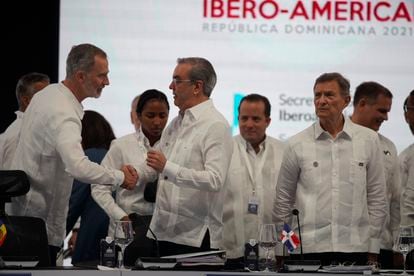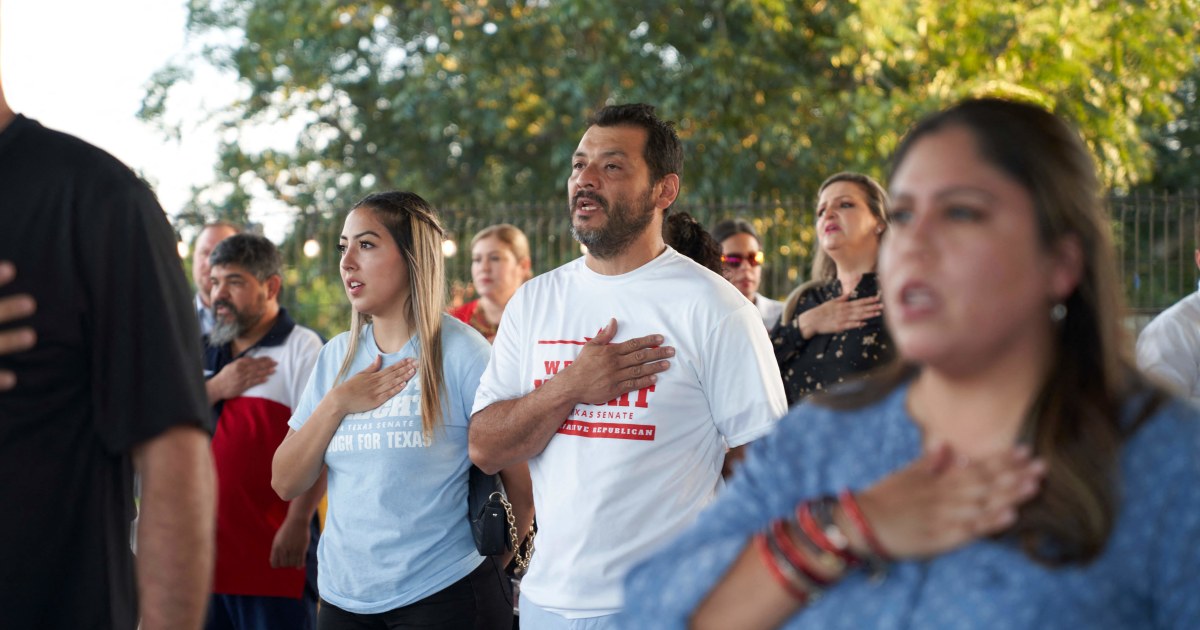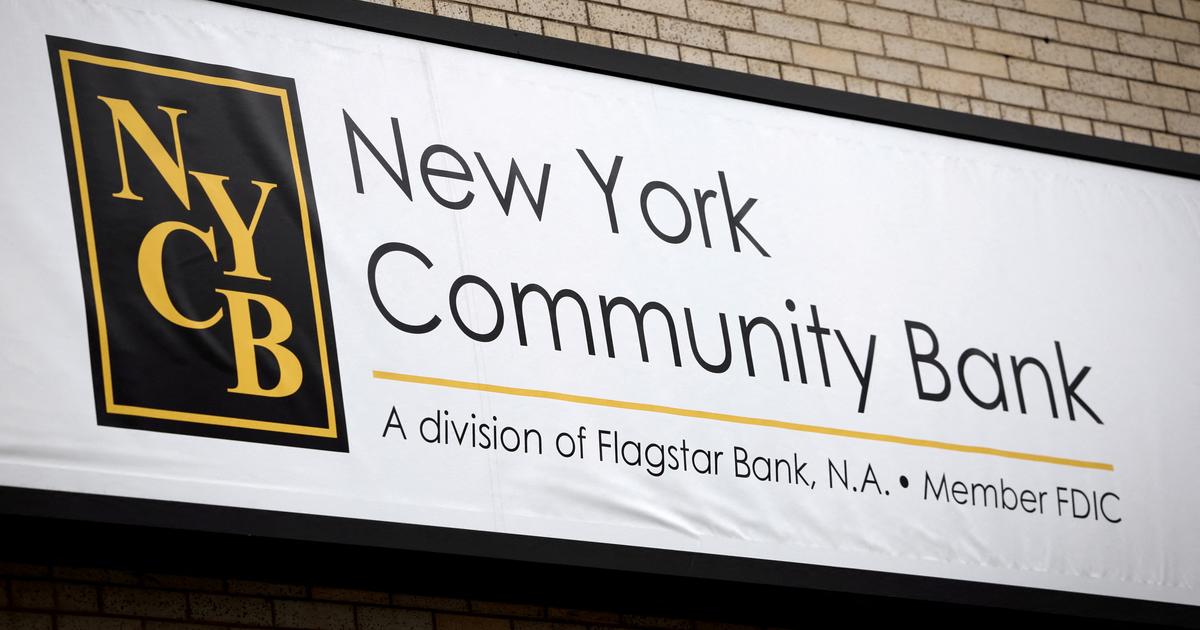The Ibero-American Community, which many considered dead or useless years ago, is consolidating.
Despite its contradictions and weaknesses, the conference that brings together the 22 Spanish and Portuguese-speaking countries in America and Europe held a summit of heads of state and government this Saturday in Santo Domingo (Dominican Republic), which is the 28th since the inaugural, held in 1991 in Guadalajara (Mexico).
And the next appointment has already been set: it will be in Quito (Ecuador) in November 2024. In comparison, other much more ambitious organizations have accused the overturning of the political map of the region: the Community of Latin American and Caribbean States (Celac). , has celebrated seven summits in its 15 years of life;
and the Union of South American Nations (Unasur) has not met since 2014.
Thirteen delegations headed by their heads of State or Government have attended Santo Domingo —both Spain and Portugal have been represented twice, by their King or President;
and by its prime minister—, two less than those who attended the last face-to-face summit before the pandemic, in Antigua (Guatemala) in 2018. The most resounding absence has been that of the Mexican, Andrés Manuel López Obrador.
The Mexican president is allergic to traveling abroad, but his absence also shows that he has not forgiven Felipe VI for not replying to the letter in which he apologized for the excesses of the colonization of America.
This is the only way to explain why he sent the undersecretary for Latin America to the summit and not a minister, like the other presidents who missed the appointment.
The other great absentee from the summit has been the Brazilian Luiz Inácio Lula da Silva but, unlike López Obrador, he apologized for the trip he had scheduled to China, although he finally had to cancel it due to pneumonia, and sent to Santo Domingo Foreign Minister Mauro Vieira to represent him.
After the estrangement of his predecessor, Jair Bolsonaro, the Ibero-American community trusts that Lula will assume a leadership role in the region and organize the 2026 summit, which will be number 30.
The other absences were as expected, from that of the Peruvian Dina Boluarte, who cannot leave her country without permission from Congress;
Even the Venezuelan Nicolás Maduro, who kept her attendance unknown until the last minute and, according to his vice president Delcy Rodríguez, gave a false positive to the covid.
The absence of four of the six Central American leaders (Nicaragua, Panama, El Salvador and Guatemala) forced the cancellation of the breakfast that the King traditionally held with all of them.
Yes, the Honduran Xiomara Castro has attended, the only woman in an overwhelmingly male cadre of leaders.
The success of the forum lies in accepting that, although the Ibero-American governments do not think the same and maintain conflicting ideological positions, they are aware that they share a common destiny: “We are all passengers on the same ship.
Nobody is saved alone”, in the words of the Argentine Alberto Fernández.
Unlike what happened a decade ago, the line of rupture no longer passes only through the left-right axis or anti-communists and Bolivarians.
The Chilean Gabriel Boric, representative of a left-wing government, has been the toughest against "the family dictatorship of [Daniel] Ortega and [Rosario] Murillo."
"The homeland is carried in the blood, it is not removed by decree," he proclaimed, after warning that silence could not be kept before the decision of the Nicaraguan regime to deprive 200 former political prisoners and 94 exiles of their citizenship.
The Spanish president, Pedro Sánchez, has not alluded to this issue in his speech, although the Foreign Minister, José Manuel Albares, has once again described the decision to turn opponents into pariahs as an “infamous” decision.
All the leaders have made a profession of faith in democracy, but not all understand it in the same way.
The Colombian Gustavo Petro has vindicated the legitimacy of the Peruvian Pedro Castillo, imprisoned after the self-coup in December, assuring that he should have been at the top.
"Should be here.
The blow was given to him ”, he emphasized.
The King of Spain, Felipe VI, greeted the Dominican President, Luis Abinader, this Saturday at the XXVIII Ibero-American Summit in the Dominican capital. Mónica González Islas
Consensus
In the Ibero-American community, decisions are made by consensus and that forces complicated balances.
The negotiations to reach a common position on the invasion of Ukraine (which Nicaragua, Venezuela, Cuba, Bolivia and El Salvador did not condemn at the UN) ended in a minimum pact: a declaration in defense of the sovereignty and territorial integrity of nations , within the framework of the United Nations Charter, in which Ukraine is not even mentioned, according to diplomatic sources.
Some of the speakers have done so, such as Boric, who has described the Russian aggression as "unacceptable" and has said that he had spoken with the Ukrainian president Zelenski to transfer his support to him;
while Petro has added that "an invasion cannot be criticized if we applaud another."
The lack of consensus has prevented the approval of one of the central documents of the summit: the one referring to the design of a new international financial architecture.
Although the Cuban Miguel Díaz Canel has alluded to the need to alleviate the debt burden, Havana opposed the proposal to make the conditions of access to credit for middle-income countries more flexible due to its references to the International Monetary Fund, according to sources diplomatic.
The document, add the same sources, has not been discarded but its approval has been postponed.
What did receive the green light was the Ibero-American Cooperation Action Plan 2023-26, the Digital Bill of Rights, the Food Security Strategy and the Environmental Charter or Green Pact.
All the leaders have warned of the risks that climate change entails for the region, but also of the opportunity it represents to move towards an economic integration that has not existed until now (according to ECLAC, intraregional trade only represents 19.2% of the total). .
“Our vision is more rhetorical than anything else.
Europe's is concrete, ours discursive.
We talk a lot but we do little for true integration”, acknowledged Petro.
On the contrary, Felipe VI has stressed that the Ibero-American Community has taken on a life of its own and no longer depends only on summits organized by governments,
The President of Costa Rica, Rodrigo Chaves, has put the chaotic situation in Haiti on the table and has stressed that the responsibility for tackling the problem lies with the entire international community and not exclusively with the Dominican Republic.
The host of the summit, the Dominican Luis Abinader, thanked him for the mention and added: "There is no other way to help Haiti than to go and pacify Haiti."
The head of the Spanish Government, Pedro Sánchez, has confirmed that the EU will present a strategic investment package for the region at the CELAC summit scheduled for July 17 and 18 in Brussels.
With the aim of preparing it, the High Representative of the EU, Josep Borrell, has been invited to Santo Domingo.


/cloudfront-eu-central-1.images.arcpublishing.com/prisa/76GDL6UNHRFLRO2RAJWYIEXOXU.jpg)




/cloudfront-eu-central-1.images.arcpublishing.com/prisa/6GDDZWYNSVEJRDR6CKXCLQPGPQ.jpg)

